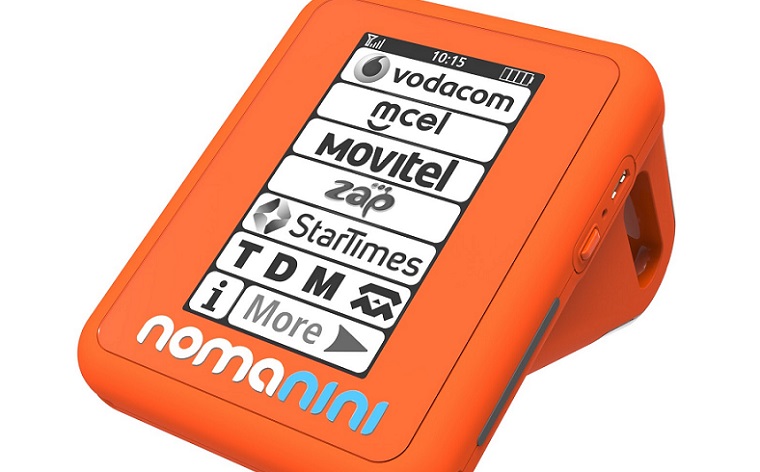South Africa-based enterprise payments platform provider Nomanini has launched its second generation product eLula, aimed at providing enterprise prepaid distributors with more sophisticated business insights via an enhanced cloud platform.
The eLula platform, which has been designed for informal markets, also aims to provide merchants with the means to sell different types of services electronically.
Nomanini has been on a fundraising streak recently, obtaining funding from Goodwell Investments and Fundamo founder Hannes Van Rensburg. The company has developed a platform that facilitates cash transactions in informal markets, has total raised capital of over US$2.3 million, and is rapidly expanding into other markets.
Its flagship product, the Lula terminal, is a rugged, waterproof, GSM-connected PoS device for printing PIN-only products, while the new eLula platform comes with additional capabilities allowing for the integration and sale of more sophisticated products.
The eLula’s enhanced dashboard management suite for prepaid distributors offers insight into merchant network activities and integration with key service providers.
“Our new dashboard drives efficiency for enterprise prepaid distributors, telling them which merchants are selling, where the sales hotspots are, which aren’t selling and why,” said Vahid Monadjem, Nomanini chief executive officer (CEO).
“This management platform has been hugely updated with our second generation eLula platform, providing not only analytics but also sales predictions, as well as integration to local products and services. We believe it is a step forward for prepaid distributors in informal markets, allowing them to maximise their sales and plan deliveries as never before.”
The second generation terminal allows for increased margins and greater competitiveness, with Monadjem saying the expansion in usage was due to the realisation that the Nomanini platform and PoS device could play a significant role in increasing access to e-payments amongst low income communities, whilst also providing additional revenue streams for merchants.
“When Nomanini started it saw the significance of enabling electronic transactions to those without bank accounts in informal markets,” he said.
“To do this, we focused on electronic vouchers for prepaid airtime to replace scratch cards, which received a great reception. But airtime is the tip of the iceberg. Our clients want a variety of services, and our devices can be used to deliver a number of fast moving virtual goods, such as prepaid electricity and water. eLula takes that foundation and provides the appropriate tech for informal markets to deliver these virtual goods, and we plan to expand into other services – such as microfinance – in the future.”
Nomanini said one concern regarding its second generation platform – which was fully developed in-house over a period of five months – was the need to add a touch screen to allow for the input of account numbers for services such as electricity and water.
“Our initial concept was that the terminal needed to be usable by everyone, and it needed to be rugged. Informal street sellers are often running from car to car, perhaps in the rain, and screens are susceptible to damage if dropped,” said Monadjem.
The issue has however been overcome with the use of an electronic paper screen for the eLula, with a 1.2m drop resistance and UV resistance. Normally used for e-readers, this is the first example of an electronic paper screen being used for PoS terminals.
“It’s the perfect technology to allow vendors to expand their services while remaining robust,” said Monadjem.
The eLula is already in use in Mozambique, and is available for purchase elsewhere, but Monadjem said that there is still a need for the original Lula terminal.
“With our different products we can target different segments of the informal vendor market. A part-time seller with small usage may use our Android platform, a seller on the street running between cars may use the Lula terminal, while physical shops and spazas looking to offer more than one type of service may prefer eLula,” he said.
“It’s up to the merchant; the key thing from our point of view is that we are able to provide a number of simple to use, affordable, robust terminals that bring electronic payments into informal markets and increase the margins for merchants and prepaid distributors.”


